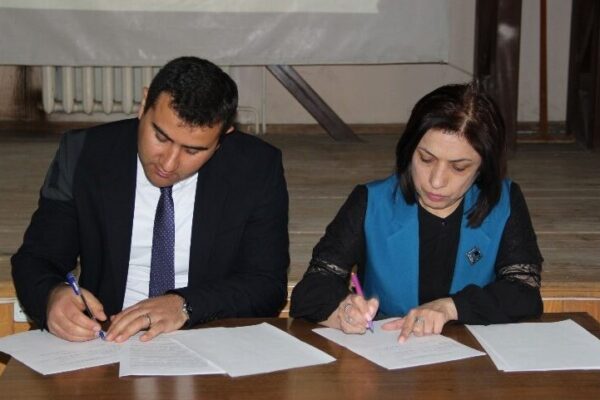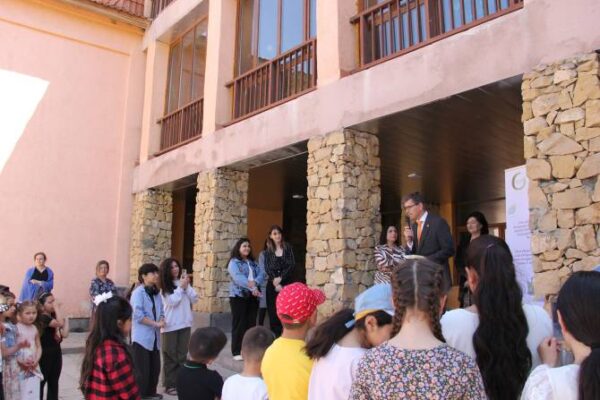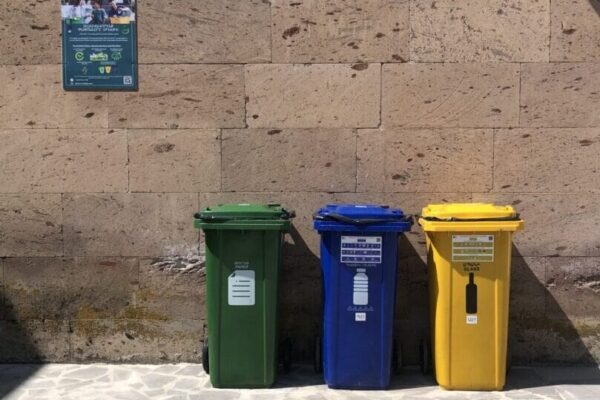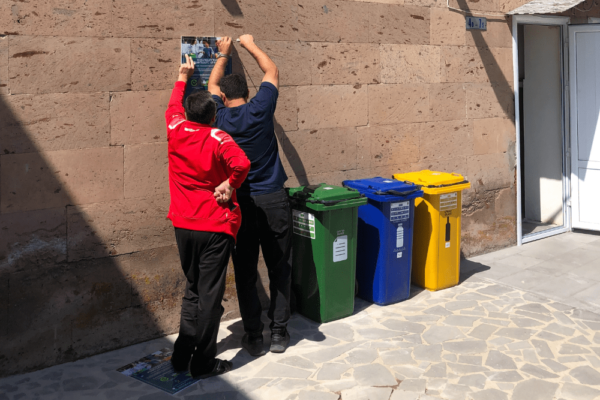Tsaghkunk
project

November 2022 - December 2023
"Providing more efficient sectoral services in local self-governments: waste management in Armenian communities, phase 2, extension to Gagarin community". The project is implemented with the financial support of the Embassy of the Kingdom of the Netherlands in Armenia.
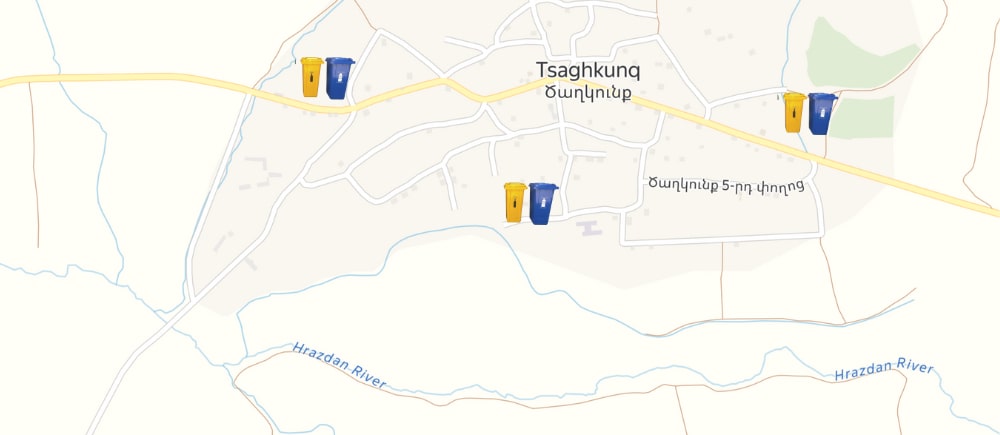
Every household must sort waste
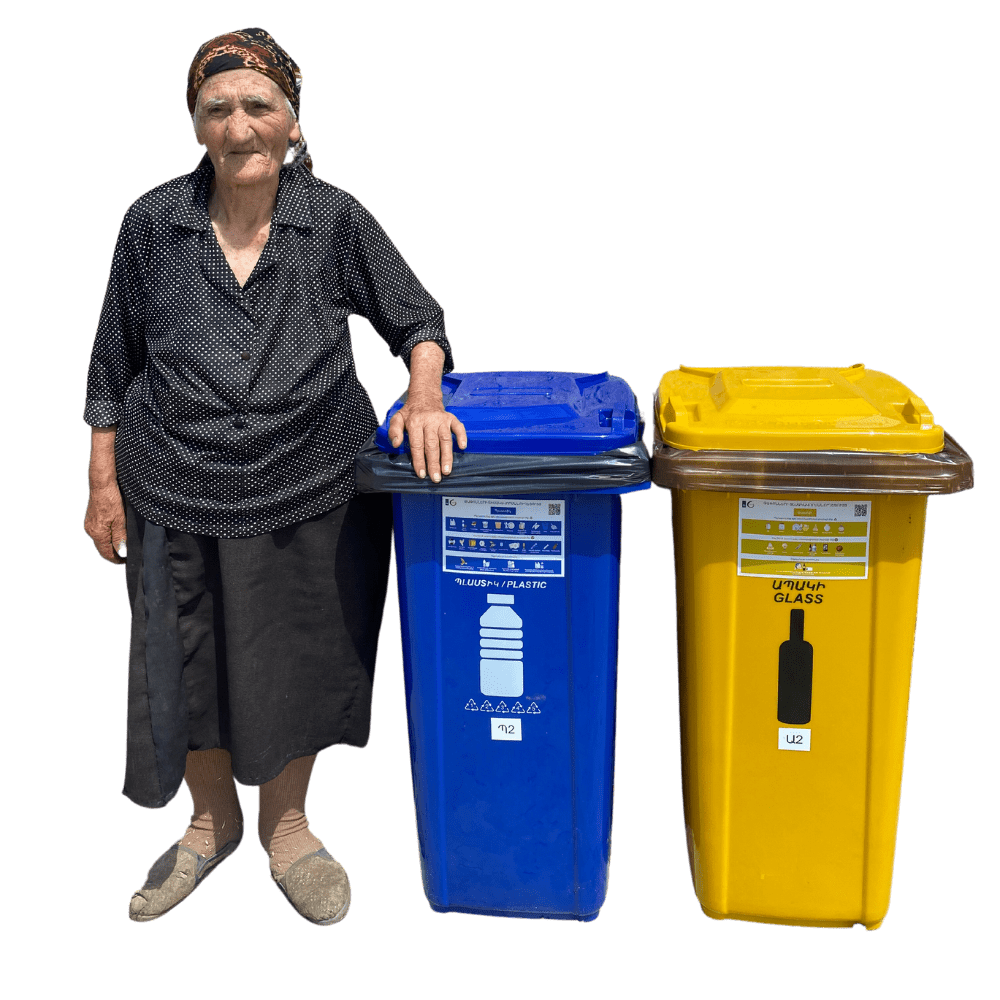
The project aims to foster the adoption of a new recyclable waste management mechanism in the community of Tsaghkunk, with plans to provide sorting containers for sorting paper, plastic or glass for 200 households, administrative, educational and cultural entities in the community of Tsaghkunk.
Additionally, it will raise awareness among the residents about the importance of recycling and its positive impact on the environment. The project is expected to not only improve local waste management practices but also to foster a culture of sustainability within the community.
180
households
823
beneficiaries
6
awareness raising events
Actions Taken
Implementation of the new waste sorting process in about 220 households and administrative, educational, cultural entities.
Increasing participation and involvement of citizens in the process of waste sorting in settlements through the installation of sorting bins and through other implemented measures.
Tracking and observing waste sorting practices in households and recipient facilities, along with carrying out additional monitoring measures for waste collection.
Development and implementation of incentive mechanisms to improve and increase the efficiency of the waste sorting process among residents and local self-governments.
Development of training and awareness-raising materials as well as arrangement of events.











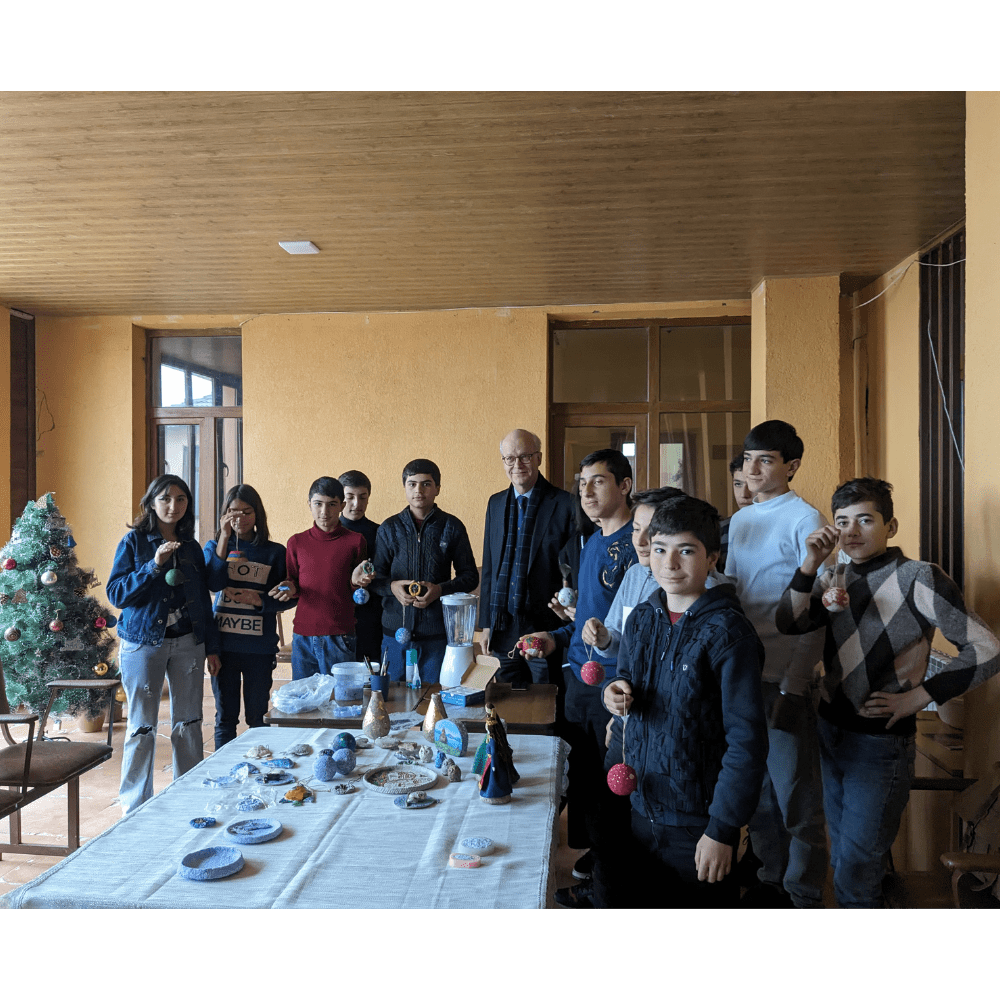
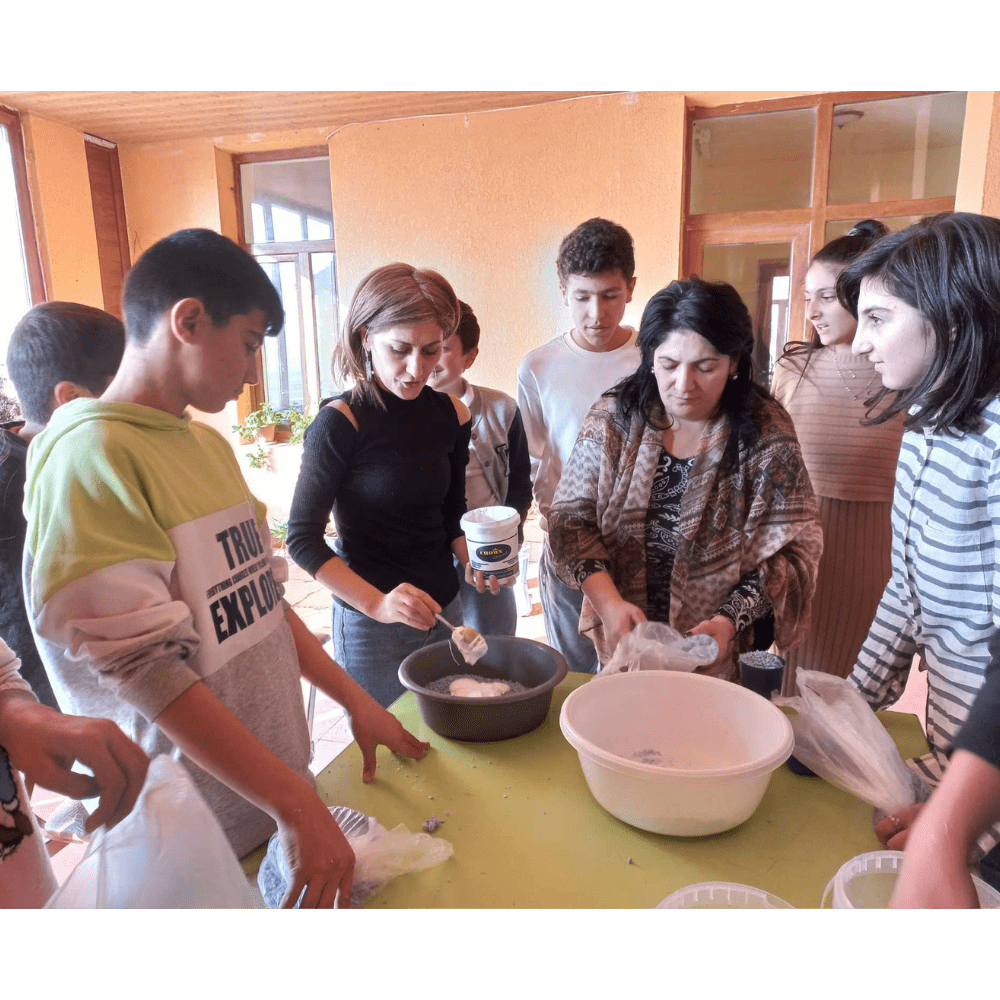
Successful Stories
Traces of Sustainability: Tsaghkunk
A Glimpse into Tsaghkunk Transformation through Waste Sorting
The documentary showcases the community of Tsaghkunk and how its people have adapted to the new practice of waste sorting. Through interviews with the residents, the film captures their feedback and experiences as they navigate this unfamiliar new type of activity. Witness the positive impact of this new activity on the community and its inhabitants.


